
Pr. Takao Shimizu, Department of Biochemistry, Faculty of Medicine, University of Tokyo (Japan)
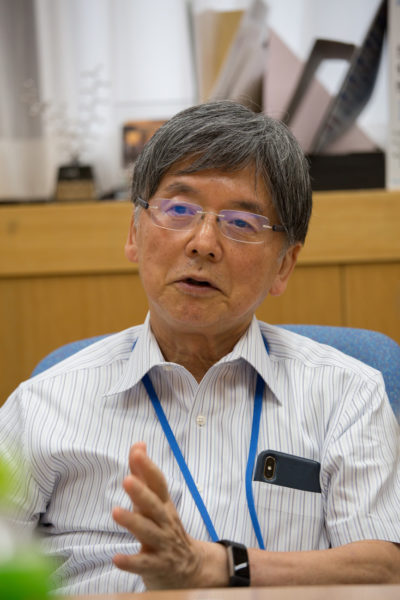 |
We are honoured to welcome Professor Takao Shimizu, M.D., Ph.D., from the University of Tokyo. He is globally recognized for his scientific achievement in the field of lipid metabolism in health and diseases. He was the first to isolate arachidonate 5-lipoxygenase and found that the enzyme also catalyzes dehydration to yield leukotriene A4 by its 8-lipoxygenase activity. For a more complete biography, we invite you to read the dedicated web page of the Bioactive lipids in Cancer, Inflammation and related diseases Conference of the Eicosanoid Research Foundation. During his career, Pr. Takao Shimizu took several leading positions, including Dean of Faculty of Medicine (2007-2011) and Executive Vice President (2011-2013) of The University of Tokyo, Science Advisor for the Ministry of Education, Culture, Sports, Science and Technology of Japan (2004-2008) and Vice President of the Japanese Medical Association (2012-2017). He serves as a Project Leader of National Center for Global Health and Medicine and he was recently appointed as the director of the Institute of Microbial Chemistry, Tokyo, Japan. He received many awards: 1981: Young Investigator Award from the Japanese Biochemical Society; 1998: Honorary member of American Association of Physician; 2000: Ernst Schering Prize, Germany; 2000: Medical Award of the Japanese Medical Association; 2000: Foreign Members of American Association of Physicians (AAP); 2001: Mochida Memorial Foundation for Medical and Pharmaceutical Research, Japan; 2003: Medical Award of Takeda Science Foundation, Japan; 2004: Prize from Uehara Memorial Foundation, Japan; 2009: Japan Academy Prize, Japan; 2009: 50th Memorial Lecture Award of Journal of Lipid Research, USA; 2013: Life-Time Achievement Award by 5th International Conference of PLA2, USA; 2013: Outstanding Achievement Award, Eicosanoid Research Foundation, USA; 2020 : The Order of the Sacred Treasure, Gold Rays with Neck Ribbon |
Pr. Eric Boilard (Québec, Canada)
 |
Éric Boilard is Professor in the Department of Microbiology, Infectious Diseases and Immunology at the Faculty of Medicine of Université Laval. He is co-founder and co-Director of the Arthritis Research Centre at Université Laval and Director of the Cytometry Platform at Centre de Recheche du CHU de Québec. He obtained his PhD in Microbiology and Immunology from Université Laval (2003) and pursued postdoctoral trainings at the Université de Nice-Sophia-Antipolis (2003-2006) and at Harvard University at Brigham and Women’s Hospital (2006-2010). It was during his studies at Harvard that Dr. Boilard highlighted the role of platelets in rheumatoid arthritis (Boilard et al., Science 2010). He was awarded the Prix Diamant, given to the most prolific early career scientist at Centre de Recheche du CHU de Québec, and the André-Dupont Award, given to the most prolific scientist involved in clinical research in the province of Quebec in 2018. In 2019, he was awarded the prestigious Cozzarelli Prize by The National Academy of Sciences (USA) for the outstanding quality and originality of their research regarding the contributions of platelets to inflammatory pathogenesis. His research aims to better understand the pathogenesis of rheumatic diseases, and to improve the success of blood transplants and transfusions to develop new therapeutics and biomarkers. He investigates how platelets and the small extracellular vesicles they produce contribute to the inflammatory responses in place in rheumatoid arthritis, lupus, and the cases of immune responses involved in transplant rejection and adverse reactions related to transfusions. He conducts clinical research with patients and mouse models of disease.See his web site |
Pr. Charna Dibner, Thoracic and Endocrine Surgery Division, Department of Surgery/Department of Cell Physiology and Metabolism, Faculty of Medicine, University of Geneva (Switzerland)
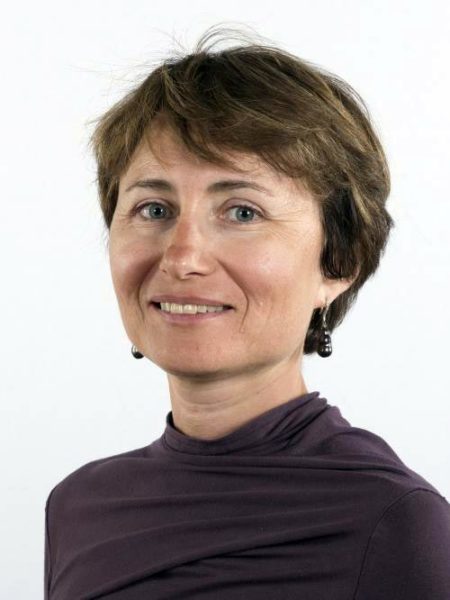 |
Charna Dibner completed her PhD in Medical Sciences in 2002 under the supervision of Professor Dale Frank in the Department of Biochemistry at the Technion Israel Institute of Technology, headed by Nobel Laureate Professor Avram Hershko. She completed her postdoctoral studies in the Department of Molecular Biology at University of Geneva, with Professor Ueli Schibler, working on the mechanisms of transcriptional and temperature compensation of the mammalian circadian clocks. In 2009, she was appointed as a Group Leader of the Laboratory of Circadian Endocrinology in the Division of Endocrinology, Diabetes, and Nutrition, at the Faculty of Medicine, University of Geneva, and in February 2021 Charna was appointed as Associate Professor at the Faculty of Medicine. Her work centers upon the implication of circadian oscillators in regulation of metabolic processes in mammals. In particular, she is interested in unraveling the roles of the peripheral clocks in human metabolic diseases and cancer. Charna’s work has been awarded with a number of prestigious Swiss prizes including Roche Research Foundation prize, Takeda prize for diabetes research, the awards by French Swiss Foundation of Diabetes Research, and by Leenaards prize of Lemanic (French Swiss) area 2019. The research of Charna Dibner in the spotlight: How Circadian clock dysfunction can lead to lipid profile disruption |
Dr Claude Forest (Paris, France)
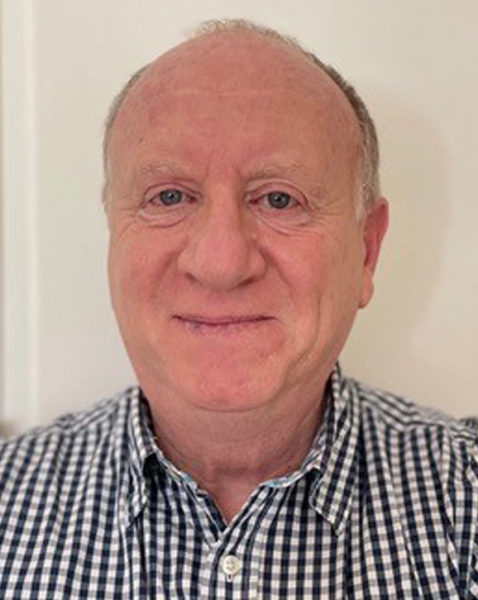 |
Claude Forest, Ph.D. is a biochemist and Honorary Director of Research at Inserm, Université Paris Cité. After a 3-year post-doctoral fellowship at Vanderbilt University in Nashville, USA, he created the Inserm Unit 530 in Paris. His research focused on metabolic and nutritional regulation of adipose tissue and liver in relation to obesity-related type 2 diabetes. He was a member of research evaluation committees at Inserm, MESR, CNU and various scientific boards. He participated in the organization of university courses (Masters, Doctorate) and was responsible for the PACES program at Paris Descartes University. He is editor of the journal Biochimie since 2005. Since 2015, he has been involved in raising awareness among research staff and students about the causes and consequences of scientific integrity breaches. Three book chapters and about 20 articles or editorials are now published in this area and several lectures and symposia have been given and co-organized. Claude Forest is a member of the group of ethics, and scientific integrity at EPEDIS |
Pr. Michael Gelb (Seattle, USA)
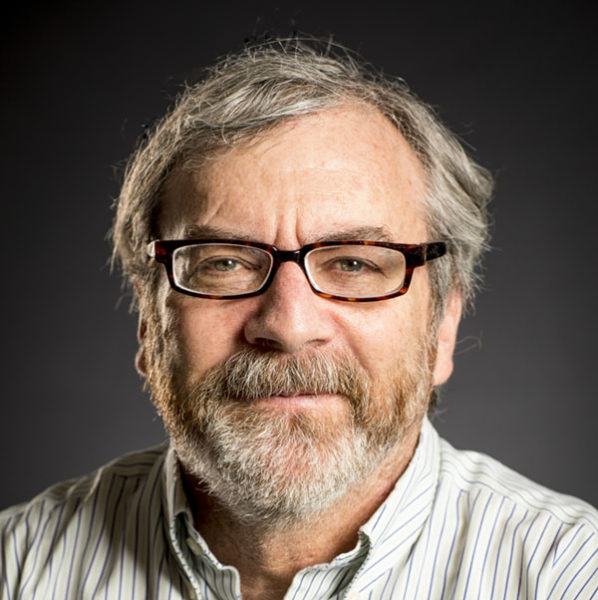 |
Michael Gelb is the Boris and Barbara L. Weinstein Endowed Chair in Chemistry in the Departments of Chemistry and Biochemistry at the University of Washington. He obtained his Ph.D. with Stephen G. Sligar at Yale University and was an American Cancer Society Postdoctoral Fellow in the laboratory of the late Robert H. Abeles at Brandeis University, both in the area of mechanistic enzymology. In 1985 Gelb became a faculty member in the Departments of Chemistry and Biochemistry at the University of Washington. Major breakthroughs in the group include the development of methods to properly analyze the action of enzymes on membrane surfaces, the discovery of protein prenylation (farnesylation and geranylgeranylation), the development of Isotope-Coded Affinity Tags (ICAT reagents) for proteomics, the development of drugs for treatment of malaria and Chagas disease, and the development of worldwide newborn screening for lysosomal storage diseases.
His awards include the Repligen Award in the Chemistry of Biological Processes (American Chemical Society), the University of Washington Faculty Lecture Award, the Gustavus John Esselen Award (Harvard University), Medicines for Malaria Venture Project of the Year, Pfizer Award in Enzyme Chemistry (American Chemical Society), ICI Pharmaceuticals Award for Excellence in Chemistry. See his web site.
|
Dr Takeshi Harayama (Sophia-Antipolis, France)
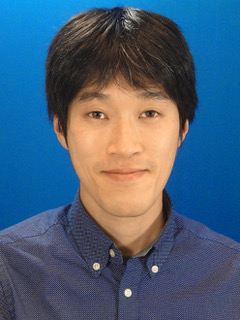 |
Takeshi Harayama is a group leader at the Institut de Pharmacologie Moléculaire et Cellulaire (IPMC). He received his PhD in 2011 from the University of Tokyo, under the supervision of Takao Shimizu. After a postdoc in the same group, he moved to the University of Geneva in the group of Howard Riezman as a postdoc in 2015. He then started his group at the IPMC in 2020. His group combines enzymology, genetics, and lipidomics to understand the metabolic regulation of various fatty acids found in membrane lipids, and to analyze how lipid acyl-chains regulate cellular functions via their effects on membrane biophysical properties and membrane-associated protein functions. See his web site. |
Pr. Dominique Langin (Toulouse, France)
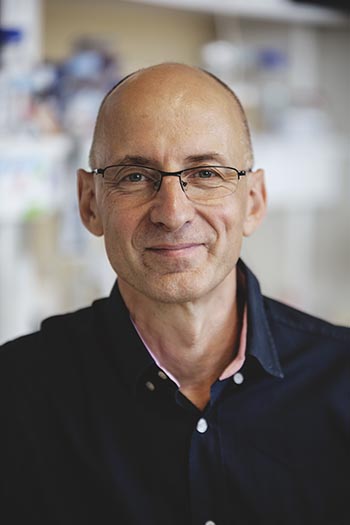 |
Prof. Dominique Langin, DVM PhD, is director of the Institute of Metabolic and Cardiovascular Diseases (I2MC, Inserm University of Toulouse, France). Following doctoral studies in France, he did a post-doctoral internship at the University of Lund in Sweden and, back to France, embarked on a scientific career at CNRS and Inserm. He now holds a professor position at the University Toulouse III – Paul Sabatier and at the University Hospital of Toulouse. He has coordinated several national and European research projects and obtained a Synergy grant from the European Research Council (ERC) in 2020. He received the Friedrich Wassermann Life Time Achievement Award from the European Association for the Study of Obesity in 2011 and the Labbé Prize from the Academy of Sciences in 2019. In 2014 and 2021, he was appointed senior member of the Institut Universitaire de France. He has devoted his scientific career to the study of the biology of adipose tissue, obesity and diabetes, with a focus on fatty acid metabolism. He has contributed to about 250 original and 80 review articles (h-index 75 WoS). |
Dr Soazig Le Lay (Angers, France)
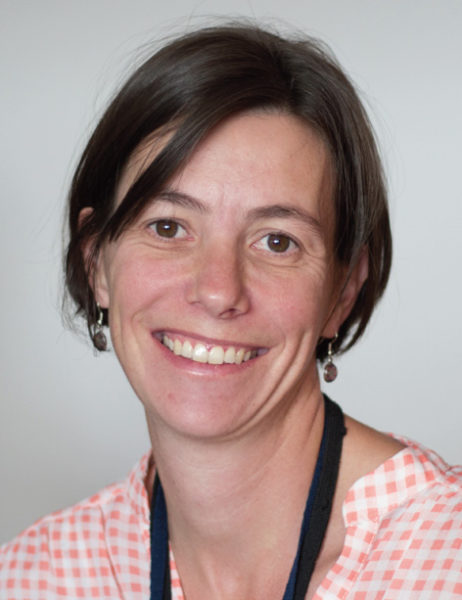 |
Dr. Soazig LE LAY is an Inserm researcher (Inserm UMR1087, l’Institut du Thorax/ITX, Team cardiometabolic diseases) that coordinates an independent research group focused on “extracellular vesicles/EVs in inter-organ communication in cardiometabolic diseases” located in Angers. After a PhD dedicated to the role of SREBP transcription factors in adipocytes acknowledged by the GERLI PhD price 2004 (PhD supervisor : Dr I Dugail), she acquired a solid background in membrane trafficking and lipid microdomains during her post-doc in Kai Simons’ Lab (2003-2006, Marie-Curie fellow FP6, Dresden – Germany). Recruited as an Inserm researcher in P.Ferré’s lab (2006-2012, Paris), she first dedicated her research to the role of caveolins/caveolae proteins in adipose tissue metabolism (> 20 publications referenced in PubMed on this topic). Since 2012, she focuses on adipose tissue derived-EVs in order delineate their role and participation in the development of metabolic complications related to obesity. She develops original and innovative approaches using specific proteins as EV tracers to better characterize EVs in term of proteins and lipid material content. Her research theme takes part of the emerging field of EVs, which deserves better characterization in the perspective to use them as disease biomarkers or therapeutic devices to prevent or limit the development of obesity associated metabolic complications. She is a member of different research evaluation committees and is a board member of scientific organizations (AFERO/French society for research on obesity, Biogenouest). She was the former FSEV (national french society of EVs, 2018-2021). She has around 60 items referenced in PubMed, with some high-impact publications (Diabetes, Autophagy, JCB, JEV etc…). She is funded by ANR grants, participated in European FP7-lipidomicNet network and currently coordinates national and regional grants. See her web site. |
Mr Sébastien Martin (St-Cézaire-sur-Siagne, France)
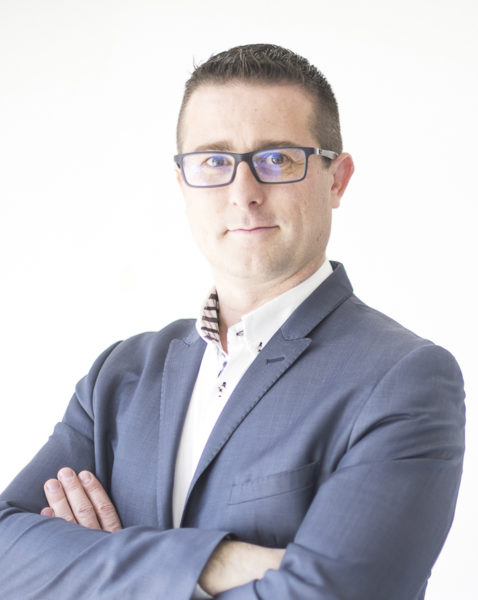 |
His introduction into the world of fragrance and flavours began at the tender age of 13, where he was fascinated by presentation from ROBERTET on the subtleties of strawberry flavours. This cemented his decision to pursue a career in the perfume industry. After obtaining a degree in Biochemistry, he subsequently specialized in Analytical Chemistry at ASFO in Grasse. He went on to join a team in ROBERTET before becoming a part of CREATIONS & PARFUMS in 2009, fully expressing his ideas through each creation.
Some of the natural and synthetic raw materials that continues to inspire and captivate him include: the fruity-animalic Osmanthus and the Ambery-musky Cashmeran. He remains fascinated by the richness and timeless quality of perfumes.
To Sébastien Martin, perfume possesses an extraordinary ability to convey strong emotions. To create such emotions and experiences for everyone around the world is his greatest pride and joy.
See his web site |
Pr. Makoto Murakami (Tokyo, Japan)
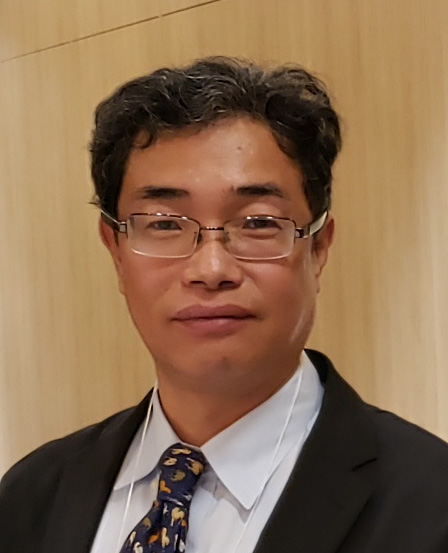 |
Makoto Murakami obtained his PhD at Graduate School of Pharceutical Sciences, the University of Tokyo (1991) and pursued postdoctoral trainings as a research fellow of the Japan Society for the Promotion of Science (1991-1993) and Harvard University Brigham and Women’s Hospital (1993-1995). He then worked as an associate professor at Showa University (1995-2005) and as a project leader of the Lipid Metabolism Project at the Tokyo metropolitan Institute of Medical Science (20015-2017). He is now working as a professor at Laboratory of Microenvironmental Metabolic Health Sciences, Center for Disease Biology and Integrative Medicine, Graduate School of Medicine, The University of Tokyo (2017-present). He published 200 peer reviewed original articles and 62 review articles, gave 50 invited lectures in the international conferences, and organized the 6th International Conference on Phospholipase A2 and Lipid Mediators as a chair (2015) and the 60th International Conference on the Bioscience of Lipids as a co-chair (2019). He was awarded the Young Investigator Award for the Pharmaceutical Society of Japan (1999), Young Investigator Award for the Japanese Society of Inflammation and Regeneration (2000), Investigator Award for the Tokyo Metropolitan Institute of Medical Science (2008), Investigator Award for the Terumo Science Foundation (2014, Investigator Award for the Bureau of Social Welfare and Public Health, Tokyo Metropolitan Government (2015), and Outstanding Achievement Award at the Eicosanoid Research Foundation (2022). He is a committee member of the Japanese Biochemistry Society, Japanese Lipid Biochemistry Society, and Japanese Society of Inflammation and Regeneration. His research aims to better understand the pathophysiological roles of the phospholipase A2 family in lipid signaling and membrane homeostasis using knockout mice and lipidomics, with a catchphrase of “the research of QOL (Quality of Lipids) for QOL (Quality of Life)”. See his web site.
|
Dr Valerie O’Donnell (Cardiff, UK)
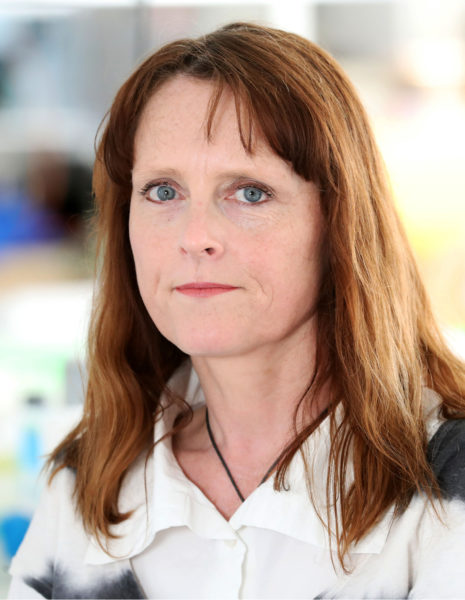 |
Valerie is Professor of lipid biochemistry at the University of Cardiff (Division of Infection and ImmunitySchool of Medicine). She is a lipid biochemist whose research is focused on using mass spectrometry for discovery and characterization of new lipid mediators of inflammation. For the last 15 yrs she has studied how a subset of oxidized phospholipids generated by circulating vascular cells regulate inflammation, wound healing and thrombosis. These are made by enzymes in platelets, neutrophils, monocytes and eosinophils and appear to be an essential part of the healthy innate immune system, however when inappropriately generated in the blood stream or in excess, they contribute directly to vascular inflammation. Her current studies are focused on their role in cardiovascular disease and arthritis. Her laboratory is also studying the composition of the SARS-CoV2 envelope and how it responds to inflammation. See her web site. |
Dr Toni Petan (Ljubljana, Slovenia)
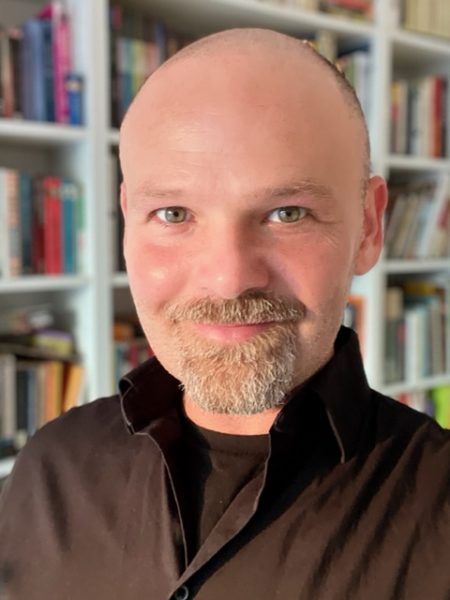 |
Toni Petan received his PhD in Biochemistry and Molecular Biology from the University of Ljubljana, Slovenia, working on phospholipase A2 protein engineering and membrane enzymology. Following his postdoc studies in cancer cell biology at Harvard Medical School, he returned to Slovenia and formed a research group at Jožef Stefan Institute, fusing his love for lipids with cancer research. His work is now focused on a fascinating, long-neglected organelle, the lipid droplet, and in particular its roles in fatty acid trafficking and signalling. Some of the research topics his group is currently investigating are 1) the roles of lipid droplets in the production of inflammatory lipid mediators, 2) the interplay between lipid droplets and autophagy and 3) lipid droplets as managers of membrane homeostasis and ferroptosis. He is also an associate professor at Jožef Stefan International Postgraduate School and enjoys working with students. See his department and his web page. |
Dr Catherine Postic (Paris, France)
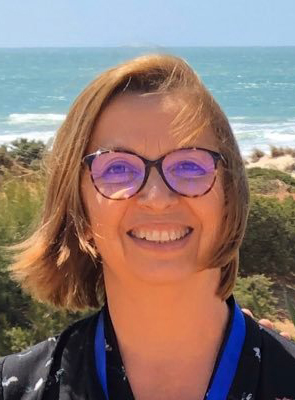 |
Catherine Postic is a research group leader at the Institut Cochin, INSERM U1016, Université de Paris Cité. Catherine Postic earned her PhD at the University Paris Diderot. She completed post-doctoral work at Vanderbilt University in Nashville, TN USA. During this post-doctoral fellowship she was trained in the field of molecular biology and achieved the making of a conditional locus for glucokinase, a key gene of glucose metabolism. With this approach she explored the cell-specific function of glucokinase in liver and pancreatic ß-cells and demonstrated the importance of this enzyme in glucose sensing. For the past 20 years she has been conducting research on the regulation of carbohydrate and fatty acid metabolism in liver under physiological and pathophysiological conditions (Type 2 diabetes; NAFLD/NASH), focusing on the role of the transcription factor ChREBP. Her group published several comprehensive reviews on this topic, summarizing years of research on ChREBP (Abdul-Wahed et al. Cell Metab. 2017; Ortega-Prieto et al. Front Genet. 2019). She has been an adviser for French government organization in the field of nutrition, metabolism, obesity and diabetes (INSERM) and a member of several national and international scientific committees for research on metabolic diseases. She is part of the Editorial Board of several scientific journals in the field of diabetes and metabolism including Diabetologia, Cell Reports, Journal of Clinical Investigation and Gut. See her web site. |
Dr Michel Record (Toulouse, France)
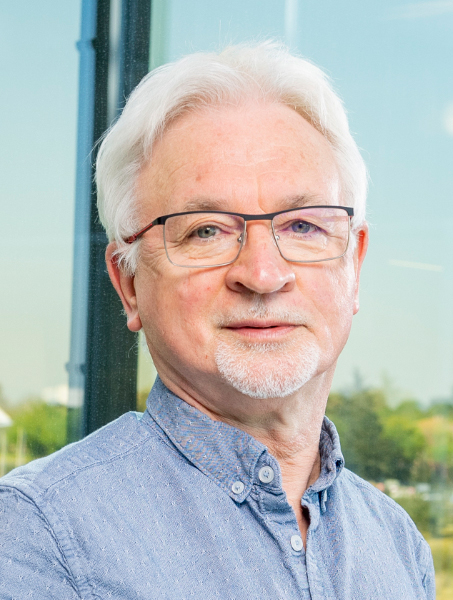 |
Michel Record, PhDSc, is Emeritus Research Director at INSERM (National Institute for Health and Medical Research) and works at the Cancer Research Center of Toulouse (CRCT). He started his scientific carreer investigating the metabolism of ether-linked phospholipids in tumor cells in the INSERM unit headed by Prof.H Chap in Purpan Hospital in Toulouse, and made his post-doctorate in this domain at the laboratory of Prof Fred Snyder at Oak-Ridge Associated University (USA). Then he moved to investigate cell communication involving phospholipase-derived lipid mediators, specifically phospholipase D. Following a sabbatical at the Basel Institute of Immunology he focused his research on extracellular vesicles as an intercellular communication process vehiculating lipid mediators, that he fully developped in joining the team headed by Marc Poirot and Sandrine Silvente-Poirot who discovered and developped the cholesterol-derived anti-tumor compound Dendrogenin A. See his web site. |
Dr Christiane Schaffitzel (Bristol, UK)
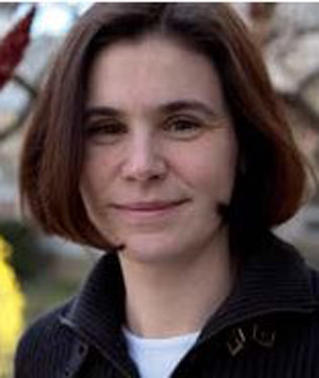 |
Christiane Berger-Schaffitzel is Professor of Biochemistry at the University of Bristol. Christiane is a leading expert in electron cryo-microscopy, who has worked at ETH Zürich and EMBL Grenoble before moving to Bristol in 2016. In Bristol, Christiane was key to establish the GW4 facility for high-resolution cryo-EM, funded by the Wellcome Trust. During the Covid-19 lockdown in 2020 Christiane joined the Bristol Uncover group to produce SARS-CoV-2 spike glycoprotein. When solving the spike structure by cryo-EM, Christiane’s team discovered a druggable pocket in the spike receptor-binding domain. The pocket is occupied by linoleic acid which stabilises a non-infectious conformation of spike and interferes with viral replication. Importantly, this pocket is conserved in all highly pathogenic beta-coronaviruses including SARS-CoV-2 variants of concern. Christiane is co-founder of Halo Therapeutics Ltd which further develops this finding to an antiviral nasal spray that is readied for clinical phase I/IIa trials. See her web site. |
Pr. Stéphane Schneider (Nice, France)
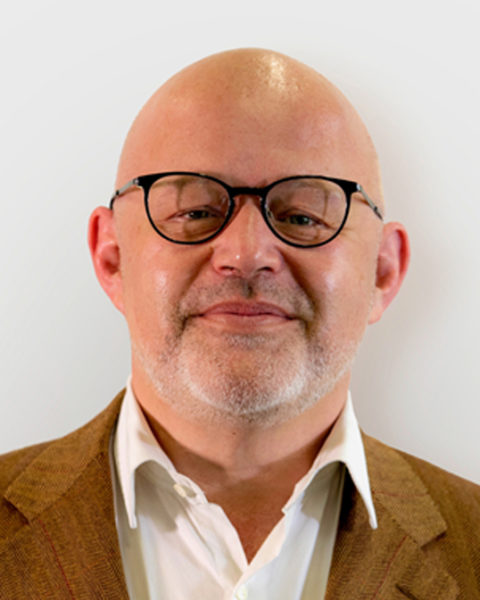 |
See his web site. |
Dr François Trottein, Center for Infection and Immunity of Lille, Institut Pasteur de Lille (France)
 |
François Trottein received his PhD degree in 1992 from the University of Lille. Between 1986 and 1994, he studied helminth and protozoan parasites with the aim to improve vaccine efficacy (1986-1992) and to better understand mechanisms leading to drug resistance (1992-1994). He did a post-doc between 1992 and 1994 at the Walter and ELIZA Hall Institute, Royal Melbourne Hospital. In 1995, he obtained a tenure position at CNRS and he started to develop his own group in France, at the Institut Pasteur de Lille. Since 1995, François Trottein has been working on host/pathogen (parasites, bacteria, viruses) interactions; the objectives being to better understand escape mechanisms to immune responses and to exploit the innate immune system for designing novel therapeutic approaches. He has made major contribution in the field of innate immunity and lipids, either eicosanoids and antigenic lipids. For the later, he described the role (either beneficial or deleterious) of Natural Killer T cells, a population of lipid-reactive T cells, during infection. Since 2010, his group is developing research projects on respiratory infections and more precisely on influenza A virus (flu), SARS-CoV-2 (COVID-19) and Streptococcus pneumoniae, the leading cause of bacterial pneumonia in humans. The research group has an interest in gut microbiota. The group’s results have given it internationally acknowledged stature in this field. The group has recently patented several therapeutic applications in influenza and pneumococcal infections, including compounds produced by the gut microbiota such as short-chain fatty acids (SCFAs). These metabolites attenuate secondary disease outcomes during influenza – including bacterial superinfection. Pharmacological approaches, prebiotics, and next-generation probiotics are being developed. These notably include bacterial strains selected for their strong anti-inflammatory potential and their ability to produce SCFAs in symbiosis with specific fibres. See his web site. |